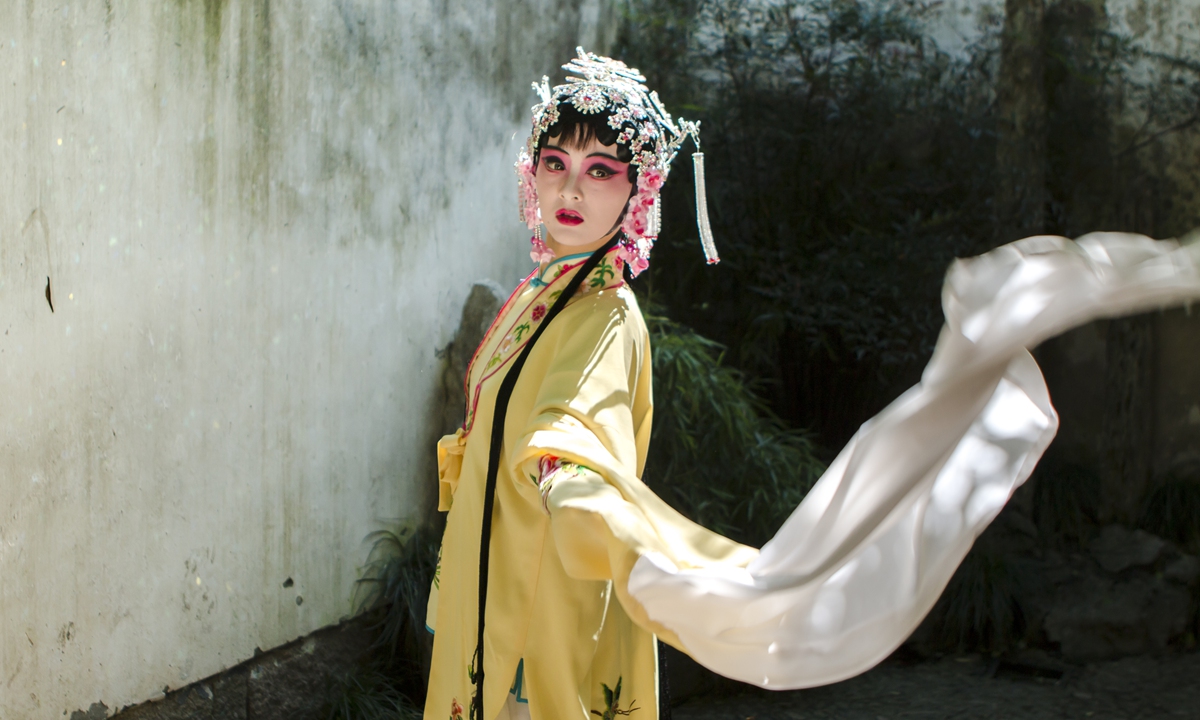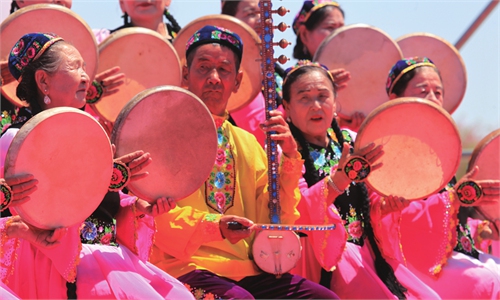
A Kunqu Opera performer in Suzhou, East China's Jiangsu Province Photo: VCG
Kunqu OperaWith a history of more than 600 years, Kunqu Opera is one of the oldest operas in China. It originated in Kunshan (near Suzhou) in East China's Jiangsu Province, hence its name. By combining southern opera with Yiyang tune and other tunes, Kunqu Opera fully matured during the early Ming Dynasty (1368-1644) and later spread to the rest of China. Since then, it has flourished thanks to its high artistic achievements.
Kunqu Opera has long been appreciated by literati as it is a lyrical art form which can best represent traditional Chinese aesthetics. It features mild and sentimental melodies, poetic lines and graceful gestures. Its singing emphasizes the control of the voice and the rhythm to create a lingering and intoxicating effect.
Its musical instruments mainly consist of the bamboo flute, xiao (vertical bamboo flute), suona (horn), pipa (fretted lute), guban (clappers), luo (gong). Singing and speaking integrate theatricalized Putonghua with the local dialect. Its stage setting uses an abstract style with simple props such as a table and a chair and depends mainly on the actors telling the audience where the story takes place through their dialogue and gestures.
There are basically five hangdang (roles) in Kunqu Opera, namely dan (women), sheng (young men), jing (men with painted face), mo (middle-aged or elderly men) and chou (comic), each of whom has its own stylized movements and performing skills. All of these have deeply influenced Peking Opera and other local operas.
Many classic plays have been passed down from ancient times, such as The Peony Pavilion by Tang Xianzu, a Chinese playwright often compared to Britain's Shakespeare, Palace of Eternal Life and Peach Blossom Fan. Stories usually focus on romantic love.
Starting from the mid-Qing Dynasty (1644-1911), Kunqu Opera began to wane due to its high-brow style and was gradually replaced by Peking Opera.
It was not until the People's Republic of China was founded in 1949 that Kunqu Opera saw a resurgence. However, with the decline of all traditional opera forms in recent years, Kunqu Opera is also facing a dilemma. In order to protect this cultural treasure, it was listed as a national intangible cultural heritage in 2006, and registered on the UNESCO Representative List of the Intangible Cultural Heritage of Humanity in 2008.
Global Times


